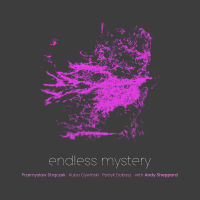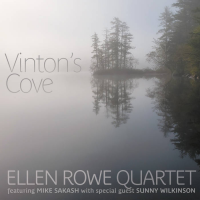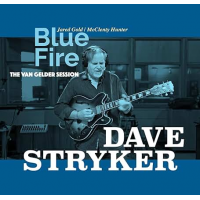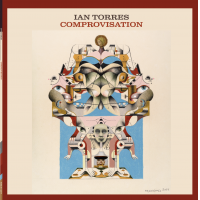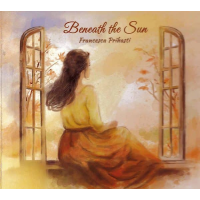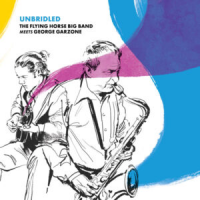Home » Jazz Articles » Album Review » John McLaughlin: Floating Point
John McLaughlin: Floating Point
With the exception of McLaughlin's collaborations with Miles Davis, these two bands perhaps define the musical personality of John McLaughlin better than any of his other diverse musical projects over four decades. It is maybe not surprising therefore, that Floating Point, conceived and birthed remarkably spontaneously in a matter of days in Chennai, India, should fuse the spirit of these two bands. The result, happily, is one of the finest records that McLaughlin has ever crafted.
Neither is it a shock that McLaughlin has given exposure to a new generation of outstanding Indian musicians, because if you throw a sandal over your shoulder in India after all, the chances are that if you don't hit a sadhu or a cow, you'll likely hit a musician of the highest caliber. The crisp, blistering drumming of Ranjit Barot (somewhere between Bill Bruford and Billy Cobham) and the effusive percussion of Sivamani combine and contrast beautifully with the telling, yet undemonstrative bass of Hadrien Feraud and the colorful touches of Louiz Banks on keyboards; with a rhythm section as propulsive, as enthusiastic and as solid as this it can only inspire the other musicians to excel.
The stunning opener, "Abbaji," with its beautiful motif, sees saxophonist George Brooks' Wayne Shorter- ish voicing and McLaughlin's laidback guitar-synthesizer dovetail effortlessly against a thunderous percussion which seems to provoke McLaughlin to let fly; yet his relative restraint provides the tension and contrast which is a feature of the record. McLaughlin has embraced the synthesizer over the years, sometimes excessively so, but on Floating Point he uses it to wonderful effect, drawing bluesy, meditative lines.
The contributions of Debashish Bhattacharya on Hindustani slide-guitar, U Rajesh on electric mandolin, Niladri Kumar on sitar, Naveen Kumar and Shashank on bamboo flute and Shankar Mahadevan's vocals are all quite exceptional. They stand toe to toe with McLaughlin and trade tremendously fluid lines, yet the superb musicianship never feels extravagant or indulgent. What sticks in the mind are the main melodies such as the Mahavishnu-like "Raju" and the beautiful, Indian-funk flute motif of "Off the One."
The record closes with the exhilarating, foot-to-the-floor "Five Peace Band" and one can imagine the sparks flying in the studio. McLaughlin himself reckons that Floating Point may be the best record he's ever made and he has good reason to be proud of this work. It would be a shame if this group didn't tour, for it is possible that McLaughlin has assembled the third truly great band of his remarkable career.
Track Listing
Abbaji (for Ustad Alla Rakha); Raju; Maharina; Off the One; The Voice; Inside out; 1 4 U; Five Peace Band.
Personnel
John McLaughlin
guitarJohn McLaughlin: guitar, guitar synthesizer; Hadrien Feraud: electric bass; Louiz Banks: keyboards; Ranjit Barot: drums; Niladri Kumar: electric sitar; Sivamani: percussion; Shankar Mahavedan: vocals; U Rajesh: electric mandolin; Debashish Bhattacharya: Hindustani slide guitar; Naveen Kumar: bamboo flute; Shashank: bamboo flute; George Brooks: soprano saxophone.
Album information
Title: Floating Point | Year Released: 2008 | Record Label: Abstract Logix
Tags
PREVIOUS / NEXT
Support All About Jazz
 All About Jazz has been a pillar of jazz since 1995, championing it as an art form and, more importantly, supporting the musicians who make it. Our enduring commitment has made "AAJ" one of the most culturally important websites of its kind, read by hundreds of thousands of fans, musicians and industry figures every month.
All About Jazz has been a pillar of jazz since 1995, championing it as an art form and, more importantly, supporting the musicians who make it. Our enduring commitment has made "AAJ" one of the most culturally important websites of its kind, read by hundreds of thousands of fans, musicians and industry figures every month.







